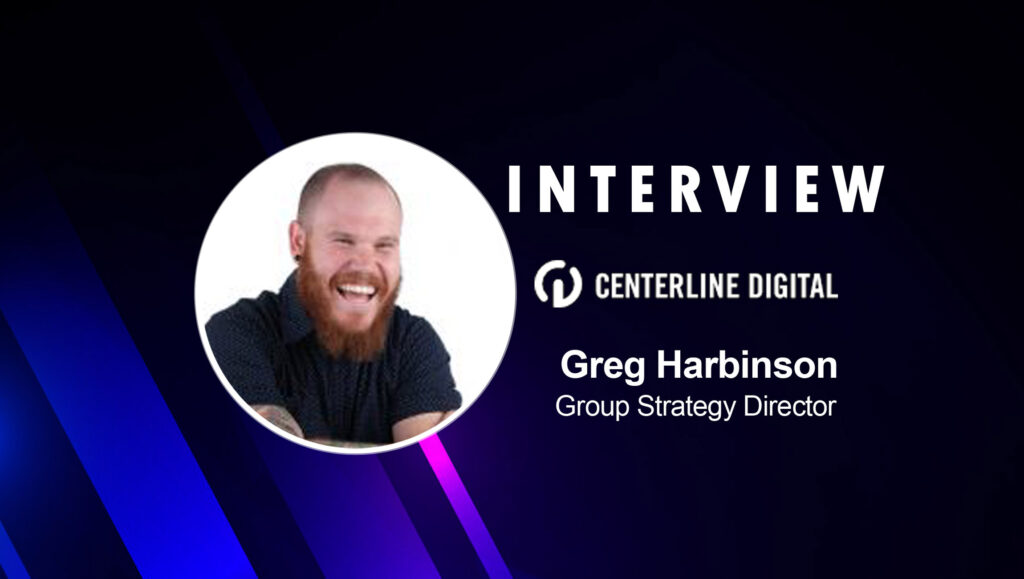Besides leading to complete transformations in how people live and work today, the ongoing global Covid-19 crisis is also changing how end users and businesses interact with each other with shifts in communication and content consumption patterns. Greg Harbinson, Group Strategy Director at Centerline Digital shares a few observations.
______
Can you tell us a little about yourself Greg? Being in marketing, what are some of the things you most look forward to?
I started in copywriting and worked my way into digital marketing gradually. My career path was largely driven by solving problems for the company I worked for at the time. It just so happened that a lot of those problems were related to digital marketing and so the shift was natural.
Read More: What Can Sales Leaders Do To Lead Their Teams Through A Crisis
Given the effects of the ongoing Covid-19 pandemic, can you share your thoughts on how marketing teams can focus on creating impactful long-term plans that can help tide through these times and changing consumer mindsets?
One of the biggest things to take note of right now is the shift in content consumption behavior. People are relying on different channels for their entertainment, communication and their work. Peak usage times for channels have also shifted. In order for marketers to be effective, they need to take notice of where their audiences have gone.
What are the tactics marketers need to change during this time and what tactics should they adopt to try and ensure better business continuity?
By now, everyone has learned we need to go digital with our efforts. One of the remaining challenges is how to replicate the quality of in-person interactions with digital experiences. For example, webinars offer a great opportunity to engage with your audience, but you need to find a way to continue that relationship after the webinar now that you can’t rely on follow-up visits or in-person events.
What are your thoughts on how the marketing world and in general the typical b2b workplace would look like in a year from now?
A year is a pretty short timeframe, given the current situation. I’d expect companies will be operating fairly similarly to how they currently are, with a continued focus on limited travel, remote working and social distancing. With that in mind, it’s important that marketers look at this landscape with a longer time horizon. We can’t just stay the course and weather this quickly. This is fundamentally changing how businesses work, and we have to be prepared to change our marketing alongside that change.
As a tech leader, in a challenging environment due to the Covid19 pandemic: what are some of the ways in which you are enabling a balanced remote work culture while maintaining motivation levels?
We’ve had to go back to our core values to remind ourselves what defines our company and our culture. We can’t interact with each other like we normally do, so we’ve had to get creative to make sure we don’t lose our culture. Alongside seeing each other on camera in meetings, things like our daily Spotify playlist takeovers and weekly collaborative playlists, monthly virtual Pizza Fridays and off-hours meetups like happy hours and book clubs have helped us keep our culture alive despite being at home.
Read More: SalesTechStar Interview With Nishant Mungali, Co-Founder And Chief Product Officer At MindTickle
No two client engagements are the same. As a modern marketing laboratory, Centerline approaches challenges and opportunities with this mindset. They are always looking to apply the right mix of talent, time, process and action to each unique situation to deliver custom solutions that better connect brands with their audiences.
Greg has always been an analyst. After starting his career as a copywriter, he quickly noticed a desire to define and refine the framework governing the words on paper. When presented with a problem, he relies on a formula of targeted observation and analysis to guide him towards the goal of providing valuable insights and recommendations. At Centerline, Greg focuses his time on helping companies create messaging and experiences to better communicate with their customers. His work included building messaging frameworks, defining the information architecture for websites, designing customer experience programs, and helping companies understand the best ways to solve communication problems. He played an integral role in their Centerline history including: IBM Cloud, IBM Watson, NI, and Assurant

















